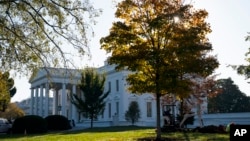Presidents Day is a U.S. holiday observed on the third Monday of February to commemorate the birthdays of U.S. Presidents George Washington (February 22) and Abraham Lincoln (February 12). This year, it will be observed on February 19.
The holiday celebrates the contributions of the two presidents, who led the country during two of the most tumultuous times in history – the American Revolution and the Civil War. Many also celebrate the achievements of U.S. presidents in general.
Most government offices and many nonessential businesses close on the holiday.
While the day is colloquially known as Presidents Day, it is known officially as Washington's Birthday, despite an attempt to change the name in Congress. Some argue that the holiday should be dedicated solely to celebrating the achievements of Washington, rather than U.S. presidents generally.
There are public ceremonies and traditions throughout the country to mark the holiday. Here's what you need to know about the past and present of Presidents Day in the United States.
History of Presidents Day
The holiday originated with the celebration of Washington's birthday. Although many celebrated his birthday while he was alive, national celebrations continued after he died. In 1879, his birthday became a federal holiday, but only in Washington, D.C. The holiday covered all federal employees in 1885.
The day was commemorated on Washington's actual birthday until 1968, when Congress passed the Uniform Monday Holiday Bill, which moved several federal holidays, such as Presidents Day, to a Monday. The bill went into effect in 1971.
The bill was aimed at giving U.S. employees more three-day weekends throughout the year, but some opposed the change, arguing that the holiday should be held on Washington's actual birthday.
While the bill was being debated in Congress, some tried to change the name of the holiday to Presidents Day to celebrate the achievements of Abraham Lincoln as well, whose birthday is in February.
The name change did not pass in Congress, but the holiday became commonly known as Presidents Day from that point forward. The name was also further solidified by companies aiming to hold special sales for the holiday.
Presidents Day traditions
According to the White House Historical Association, presidents throughout U.S. history have celebrated the birthdays of Washington and Lincoln in various ways. For example, President Andrew Jackson celebrated Washington's birthday in 1837 with a 635-kilogram (1,400-pound) wheel of cheese he shared with guests.
In 1931, President Herbert Hoover addressed the nation via a radio address to commemorate the birthday of Lincoln, and President Lyndon B. Johnson held a Lincoln Day luncheon at the White House in 1965.
In 2015, President Barack Obama commemorated the day by revamping the White House web pages about each U.S. president to facilitate learning about their history.
For the public, Presidents Day celebrations occur throughout the country. Some notable traditions are the Presidents Day parade in Old Town, in Alexandria, Virginia, near Washington’s estate, Mount Vernon. This year, the parade will follow the theme of "George Washington: Alexandria's Oldest Living Legend."
In addition to parades, many go to national monuments to presidents such as Washington and Lincoln. On Presidents Day, Mount Vernon will be have free tours of the mansion.
Many companies also hold holiday sales on Presidents Day, particularly on furniture and appliances.





